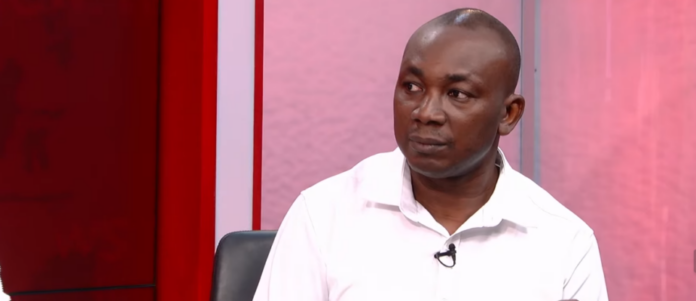Economist and Professor of Finance, Godfred Alufar Bokpin, has warned that Ghana may be on track for a premature exit from the current International Monetary Fund (IMF) programme by late 2025, cautioning that the country may not be ready to operate without external oversight and support.
Speaking on Joy FM’s Super Morning Show on Tuesday, May 27, Professor Bokpin expressed concerns about Ghana’s readiness for a full exit once the final review is completed around mid-2026.
“Given our current progress, if we essentially exit by December 2025 when reviews are complete around mid-2026, I think it will be premature to say, ‘yes, we’re walking away completely’. I see the government’s damage control approach of transitioning to a policy support instrument rather than full exit, but the reality is we all would prefer Ghana to stand independently,” he said.
Ghana has sought assistance from the IMF 17 times since independence, with previous programmes ending prematurely—often followed by economic relapses.
“If you check our records with the IMF, the government is actually more accountable to citizens when under an IMF programme. There’s greater transparency, collaboration and disclosure to the people of Ghana under IMF supervision than when we’re on our own,” Professor Bokpin noted.
He also raised alarms over inconsistencies in the country’s fiscal reporting, accusing both major political parties of manipulating the figures to suit their agendas.
“In early 2022, when we highlighted that the Bank of Ghana was monetising debt—essentially printing more cedis—the central bank denied it. We said, ‘Wait until the IMF applies their Debt Sustainability Framework.’ The truth came out—our debt-to-GDP ratio in present value terms was 109%, while before the IMF came in, we were reporting less than 80%,” he explained.
“Ghana’s public debt had become multiple choice—you picked the number based on which party you supported.”
While acknowledging recent improvements in some economic indicators, Professor Bokpin stressed that deep-seated institutional weaknesses still remain.
“We’ve aged but haven’t matured. On our own, we can’t hold ourselves to the accountability and discipline required for medium- to long-term progress. Can we demonstrate operational independence of a Fiscal Council that provides real oversight—not just theoretical?” he questioned.
Some economists and policy analysts have suggested that Ghana maintain a form of IMF engagement beyond 2025, while strengthening domestic fiscal institutions. Other proposals include implementing binding fiscal rules with enforcement mechanisms and improving transparency in debt reporting and monetary operations.
They warn that without such measures, Ghana risks repeating its boom-bust cycle and may soon return to the IMF.


